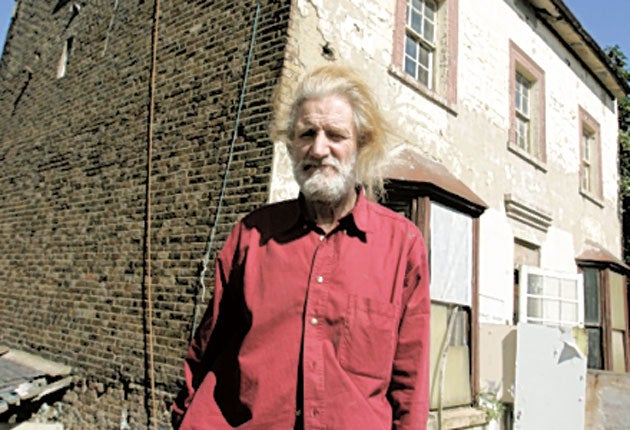Meanwhile, the 'human mole' bites the dust

Your support helps us to tell the story
From reproductive rights to climate change to Big Tech, The Independent is on the ground when the story is developing. Whether it's investigating the financials of Elon Musk's pro-Trump PAC or producing our latest documentary, 'The A Word', which shines a light on the American women fighting for reproductive rights, we know how important it is to parse out the facts from the messaging.
At such a critical moment in US history, we need reporters on the ground. Your donation allows us to keep sending journalists to speak to both sides of the story.
The Independent is trusted by Americans across the entire political spectrum. And unlike many other quality news outlets, we choose not to lock Americans out of our reporting and analysis with paywalls. We believe quality journalism should be available to everyone, paid for by those who can afford it.
Your support makes all the difference.A retired civil engineer whose 40-year habit of tunnelling under his home led to him being removed to a top-floor flat in a tower block has died, leaving council bosses with a further bill after it was revealed he had continued his burrowing habit even when living several hundred feet above the ground.
William Lyttle, 79, became known as "Mole Man" when a collapsing pavement outside his dilapidated 20-room detached home in Hackney, east London, in 2001 alerted building inspectors to suspected subsidence. When experts gained access to the property they found a network of tunnels spreading up to 20 metres from the basement, bringing the house to the point of collapse.
Mr Lyttle, who never revealed the reason for his obsessive digging, was eventually evicted from his house on Mortimer Road, which could be worth up to £1m if renovated, to allow officials to make it safe by pouring concrete into the voids left by the removal of 100 cubic metres of soil.
In 2008, the High Court ordered the pensioner to pay £293,000 to Hackney Borough Council to cover the work to make the structure safe, including the removal of 33 tonnes of waste and debris, such as the remains of three Renaults and a boat found partially buried in the garden.
Mr Lyttle was put up in a hotel for three years at a cost of £45,000 before eventually being moved last year to a flat in a high-rise block, where he died earlier this month from natural causes. It emerged yesterday that Mr Lyttle had "gone back to his old behaviour" by knocking a hole in the dividing wall between the living room and the kitchen.
A source said: "After he died we went to see his flat and it was a mess. A huge section of wall had been knocked down."
Hackney council is still intending to secure the £293,000 it is owed and intended to see Mr Lyttle's house, which he had inherited from his parents, restored to its original state by seeking an order for it to be sold.
Scotland Yard said it was trying to trace relatives of Mr Lyttle, who came from Ireland and was known to have a daughter.
Join our commenting forum
Join thought-provoking conversations, follow other Independent readers and see their replies
0Comments